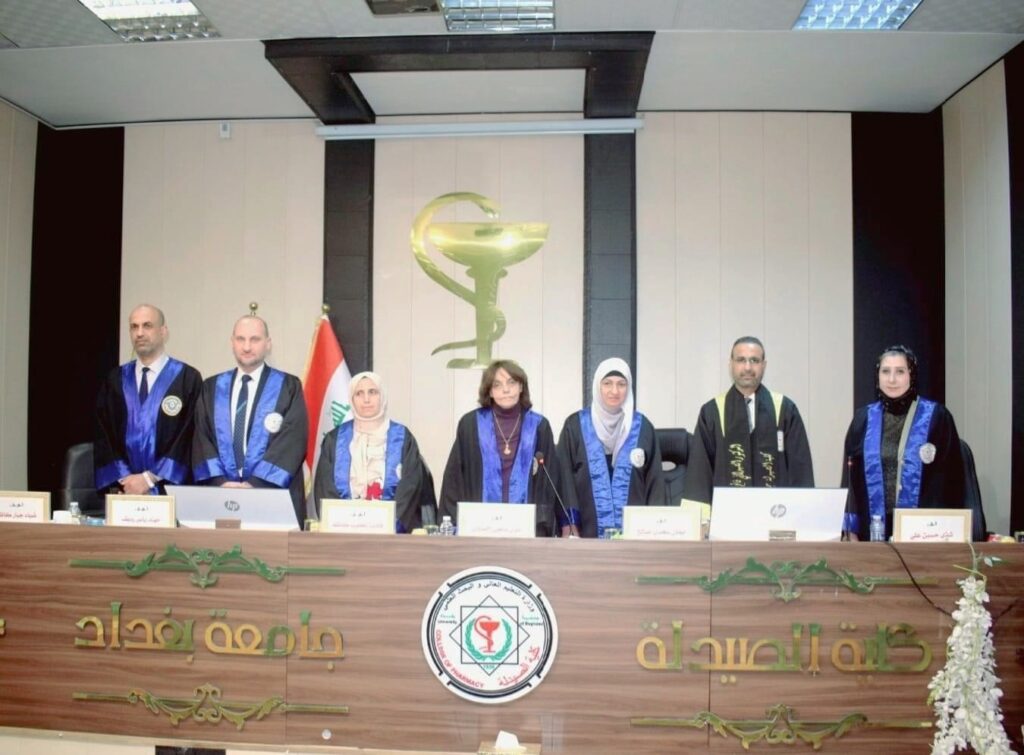(The Faculty of Pharmacy discussed the Ph.D. thesis titled “The Impact of the Multiplicity of Genetic Forms of Advanced Kiln End Product Receptors, on Aspirin Resistance in a Sample of Iraqi Patients with Coronary Artery Disease (Coronary Artery Disease) by Faleh Abdullah Khadir at the Clinical Pharmacy Department and his supervisor, Professor Dr. Shatha Hussein Ali. This work aims to estimate the prevalence of aspirin resistance among Iraqi coronary artery patients with and without type 2 diabetes. Also, to identify the single nucleotide polymorphisms rs80096349 (C>T), rs2070600 (G>A), rs1035798 (C>T) and rs184003 (G>T) belonging to the receptor of the glycation end products gene developed in the studied patients. In addition, to assess the degree of association between aspirin resistance and different genotypes of these genetic variants in Iraqi patients with coronary artery disease.The results showed that out of the total number of patients participating, 40 were aspirin-resistant, with a prevalence of aspirin resistance of 17.8%. Also, genotype analysis of the current study data showed that participants possessing the recessive T allele of the rs184003 (G/T) variant had a higher frequency in the aspirin-resistant group than in the aspirin-sensitive group. In contrast, the frequency was statistically higher for the recessive T allele of the rs10835798(C>T) variant in the aspirin-sensitive group than in the resistant group. The study also showed that serum levels of receptors for advanced glycation end product in the aspirin-resistant group were significantly higher compared to those in the sensitive group. Finally, the results provide evidence for the presence of the genotypes rs1035798 (C>T) and rs184003 (G>T), as well as elevated serum levels of the glycogen end-product receptors advanced, which may enable us to predict susceptibility to aspirin resistance in coronary artery disease patients with type 2 diabetes who do not suffer from it.



